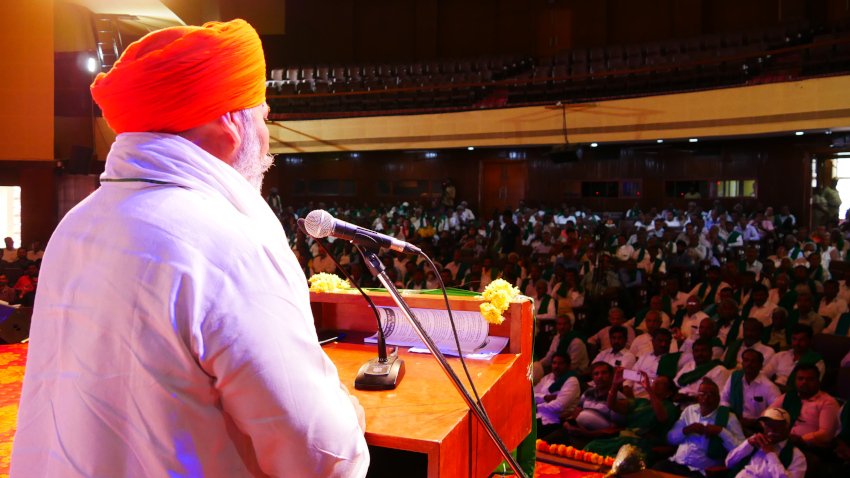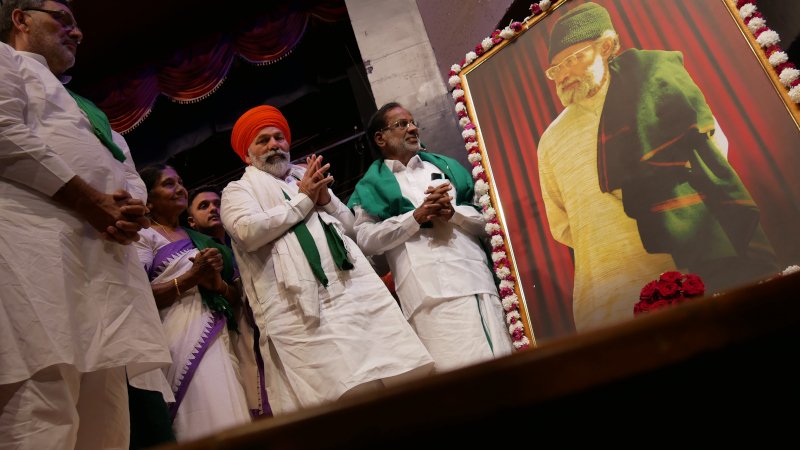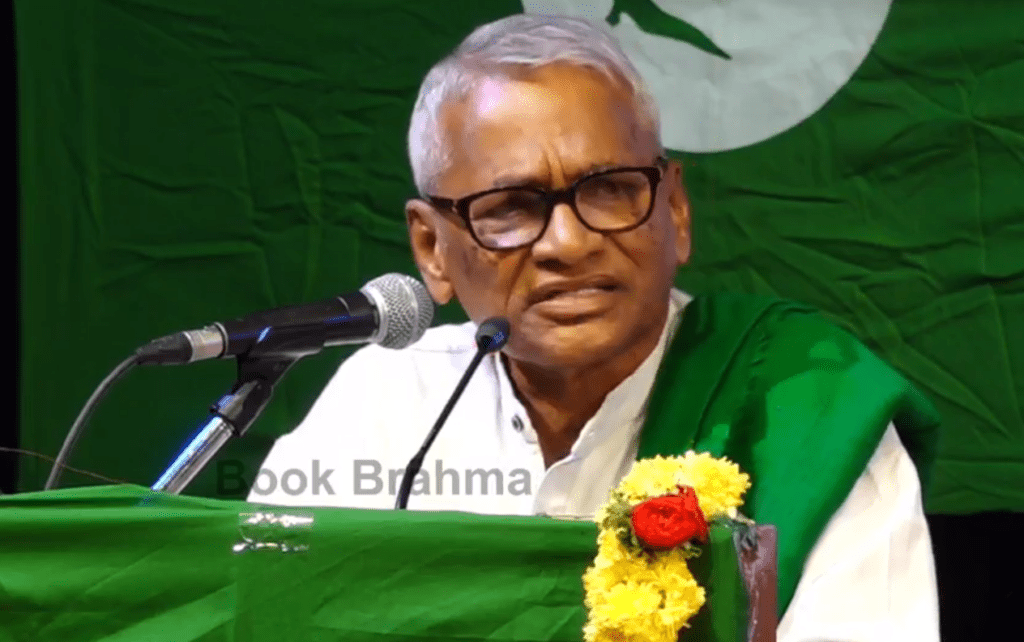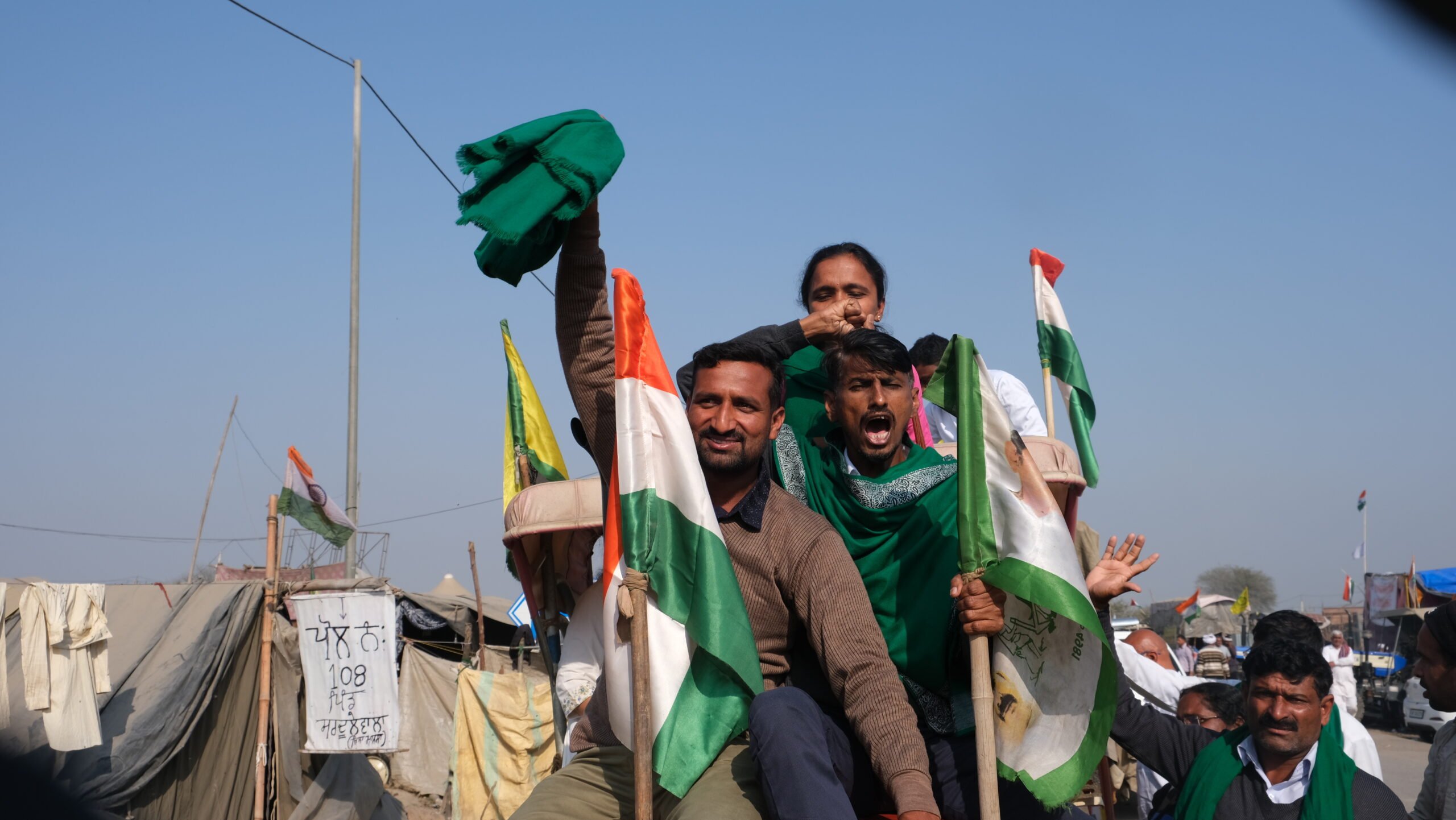India’s capital city, New Delhi, is once again on the edge.
Thousands of farmers from the neighboring state of Punjab are marching toward the metropolis, demanding a legal assurance of a minimum support price for their crops. With national elections looming in a couple of months, the ruling coalition is concerned that a large-scale mobilization akin to the one seen in 2020 could spell trouble for them. Farmers are convinced that governments only heed their demands around election time. And so, the march continues.

On February 13th, at the Shambu border between Haryana and Punjab, marching farmers were met with tear gas and rubber bullets. Closer to the national capital, media reports depict main arterial roads fortified with iron fences, metal rings, and nails on the ground. Farmers liken the area to a war zone and question such tactics in a nation that prides itself on its democratic values. Local workers who rely on the route to commute between their workplaces and homes now trek several miles daily as vehicular traffic is halted.
Leaders of the Samyukt Kisan Morcha (SKM), which spearheaded the historic 2020 protests, have clarified that they are not organizing the current march. Instead, it is organized by groups once part of the 2020 mobilizations but have since broken away to operate independently from the larger SKM coalition. Nonetheless, the SKM has defended everyone’s right to protest and repeated their call for a one-day nationwide strike by farmers and trade unions on February 16th, especially in the rural areas. The unions calling for this national strike have demanded pensions for farmers, minimum support price for crops, implementation of the old pension scheme, and the withdrawal of the amendment of labour laws.
Beneath the surface of these details and intricacies lies the dire state of Indian agriculture today.
Between 1991 and 2011, nearly 15 million farmers abandoned farming to seek other means of livelihood. While data for the last decade remains unavailable, most Indian cities have witnessed a significant influx of laborers, indicating rural distress. One major factor rendering agriculture unviable for many small-scale Indian farmers is the meager returns they receive.
In a 2022 interview with Thirdpole, Devinder Sharma, a food and trade analyst, elucidated this issue, citing a study by the United Nations Conference on Trade and Development that revealed stagnant farm gate prices for agricultural products from 1985 to 2005, adjusted for inflation. Another study by the Organisation for Economic Cooperation and Development and the Indian Council for Research on International Economic Relations estimated that Indian farmers lost USD 600 billion from 2000 to 2016. Sharma highlighted the stark reality that, in 2016, the annual per capita earnings from farming in 17 states—half the country—amounted to less than USD 270, or less than USD 23 per month.
Nalla Gounder, a farmer from Tamil Nadu, poignantly asks, “In just the last decade alone, the selling price of coconut has halved while the cost of farm labor has doubled. How do you expect farmers to survive?”
The escalating frequency of climate catastrophes, including hailstorms, untimely rains, prolonged droughts, and dwindling water sources, further compounds the challenges of achieving a successful harvest. Over the past 30 years, input costs have steadily risen while selling prices have failed to keep pace. Consequently, half of rural farming households find themselves in debt, with suicides tragically becoming a desperate means of escape.
Farmers are at their wits’ end. Clinging to their last straws for survival, they firmly believe that a legally guaranteed minimum support price would, at the very least, prevent their produce from being sold at suppressed prices.
However, enacting such a law is easier said than done. India’s membership in the World Trade Organization has exposed its public food security and procurement programs to repeated attacks from export-oriented countries, particularly the United States, labeling them as ‘trade-distorting.’ These countries view any domestic support offered to Indian farmers as a hindrance to market access. Even proposed special safeguard mechanisms aimed at enabling national governments to control the influx of cheap imports have been contentious points during agricultural negotiations at the WTO. For developing nations like India, the domestic support they provide to farmers – including the minimum support price – is crucial for sustaining rural economies.
Caught in this quagmire, farmers bear the brunt of the situation.
The existing minimum support price offered by the Indian government covers only 23 crops, and farmers have long argued that these prices barely cover production costs. They advocate for a redefined methodology for determining cost of cultivation by including rentals and interest for owned land and fixed capital assets. They demand that the minimum support price is at least 50% higher than this revised input cost. A 2006 report, often referred to as the Swaminathan Commission Report in India, recommended that the MSP should be at least 50% higher than the weighted average cost of production. However, this recommendation has remained unaddressed.
In Bangalore, during the commemoration of the 88th birth anniversary of legendary peasant leader Prof. M D Nanjudaswamy in Karnataka, Rakesh Tikat of the Bhartiya Kisan Union, a prominent figure from the 2020 agitation, emphasized the importance of implementing the recommendations made by M S Swaminathan, rather than merely honoring him posthumously.
“It is good that the government has honored M S Swaminathan with the highest civilian honor posthumously. But what is more important for farmers is that governments implement what M S Swaminathan recommended, and to turn it into a legal guarantee.”
1 tractor, 1 village, 15 people, 10 days – the formula that sustained a peasant movement for 13 months in India
In 2020, the Indian government introduced three contentious farm laws, which farmers alleged aimed to corporatize the agricultural system without addressing the root causes of distress. The vehement protests led by farmers for 13 months forced the Indian government to withdraw these laws.
Tikait outlined their strategy during the protests, “To protest for 13 months was not easy, as it stretched across many seasons. So we followed a formula where each village would send one tractor carrying 15 people to the Delhi border and after 10 days they would return while another batch from the village replaced them. It was a show of strength and solidarity by India’s farmers and it emerged from this connected reality of falling incomes and increased expenses.”

While withdrawing the laws in 2021, the Indian government also pledged to address the issue of Minimum Support Price, yet no progress has been made since.
Speaking to the TRT World during the commemoration on February 13th, Chukki Nanjudaswamy from the Karnataka State Farmers Association lamented the lack of government action regarding rural distress and the absence of legislation guaranteeing the minimum support price. “We have been the victims of a neo-liberal system and climate catastrophes. No governments are looking into it. By now they should have at least held a serious discussion in the Parliament. More than 25% of our population have left rural areas in the last decade.”
Devinder Sharma, also present at the ceremony in Bangalore, highlighted the global nature of the crisis among peasant farmers, citing ongoing protests in Europe demanding fair prices for produce and greater state support for agroecological transition. He warned against the dangers of globalization, echoing Prof. M D Nanjundaswamy’s earlier warnings about its implications for farmers.
“From Europe to India, small-scale food producers are taking to the streets to protest against attempts to render agriculture unviable for them. As the global trend shifts toward industrial agriculture and ag-tech, with large-scale food tech factories emerging, the traditional model of farming faces existential threats.”, he said. Sharma also pointed out instances of lab-made proteins replacing real ones, such as the recent approval of lab-grown meat in the US. He warned that this trend is pushing agriculture toward a dystopian future where farmers are marginalized, echoing concerns raised by Prof. M D Nanjundaswamy decades ago.
“The plight of farmers in India is a microcosm of a global crisis affecting small-scale farmers worldwide. In 2020, Indian farmers showed their resilience by protesting for 13 months. We can do that again, and our villages are closely watching what is going on. The government can bring a resolution in no time if they sincerely wish to. Just bring the law that assures MSP,” reminds Yudhvir Singh of the Bhartiya Kisan Union, who also attended the birth anniversary event of Prof M D Nanjudaswamy.

“Prof MDN had this uncanny ability to connect global struggles, as he recognized the shared realities of peasant farmers everywhere. He was among the founders of the global peasant movement La Via Campesina thirty years ago, an excellent organizer who brought many farmers’ movements together. Today is a day to remember his legacy as we witness once again this global mobilization by small-scale farmers everywhere for better prices.” Prof Ravivarma Kumar ex-attorney general of Karnataka and also the current International Coordination Committee member of La Via Campesina remembered the legendary peasant leader.

The Karnataka State Farmers Association (KRRS) that organized the Bangalore event also issued a resolution, calling upon the Indian government to protect its public food stock and procurement programs, and domestic support on farm inputs at the 13th WTO Ministerial to be held in Abu Dhabi later this month. “India should resist pressure from these developed countries, as it could compromise the food security of other developing nations, including India itself. To ensure the sovereignty of farmers, as advocated and championed by the KRRS since the 1990s, we demand keeping agriculture outside WTO negotiations.” the resolution reads.
The state farmers’ association also condemned Israel’s attack on Gaza. “We demand and call upon our government to intervene and support the rallying global call for peace in Gaza, demand an immediate end to this war and ask Israel for immediate withdrawal of its troops and save the 5 million Palestinians in Gaza and the West Bank from starvation, death and murder.”
The resolution also called for strict prohibition of experimentation and field trials of all transgenic crops, including transgenic Herbicide Tolerant mustard. “Introducing herbicide-tolerant mustard into farmers’ fields under the guise of hybrid technology is misleading, especially when non-genetically modified hybrids are readily available. The Karnataka government can set a strong precedent for other states by banning transgenic mustard and all other GM crops in the state and urging the central government to revoke its earlier approval.”, it stated.
Cover Image: File photo from 2021 protests

